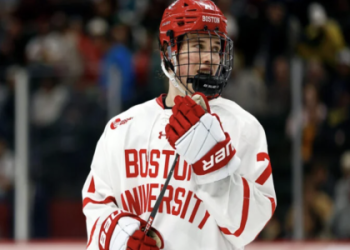In the competitive landscape of the NBA, building a winning team requires a blend of strategy, talent, and a deep understanding of each player’s strengths. Recently, discussions around the Basketball GM GOAT Formula have gained momentum, highlighting keys to forming a championship-caliber roster. The goal is simple: identify and acquire players who not only excel individually but also complement each other on the court.
One critical aspect of successful team building is recognizing the importance of synergy among players. Consider last season when the Phoenix Suns made headlines by acquiring Kevin Durant. This significant move was a calculated risk that immediately boosted the team’s championship odds. “KD is a game-changer. He not only scores but elevates everyone around him,” said Suns’ coach Monty Williams during a press conference. This is a prime example of how integrating top-tier talent can instantly elevate a team’s performance.
As we delve deeper into the formula for a winning team, it is essential to analyze various play styles and positions. A well-rounded roster typically includes two to three dynamic scorers, multiple defensive specialists, and a reliable playmaker. Golden State Warriors’ success can be attributed to this balance. Stephen Curry’s shooting ability, Draymond Green’s defensive prowess, and Klay Thompson’s sharpshooting create a formidable trio that outmatches opponents consistently. “We feed off each other’s strengths,” noted Curry, emphasizing the importance of team dynamics.
Understanding Player History and Market Trends
When constructing a team, understanding player history and market trends is vital. For example, the LA Clippers’ recent strategies reflect a careful evaluation of available talent. After missing the playoffs several seasons, they looked to acquire players like Kawhi Leonard and Paul George to create a powerhouse. Their goal? To combine veteran experience with youth and skill. “Every year is a new chance,” mentioned Leonard, underscoring his desire for redemption and success.
In addition, the escalating importance of analytics cannot be overlooked. NBA teams now rely heavily on data to evaluate player performance, strengths, and weaknesses. In particular, statistical analysis allows GMs to make informed decisions during the draft or free agency. The Toronto Raptors epitomized this strategy by focusing on versatile players, resulting in their 2019 championship win. General Manager Bobby Webster stated, “We look at the numbers, but we also trust our instincts.” This hybrid approach makes their team unique.
Furthermore, creating a winning culture within the team enhances collaboration and performance. Coaches play a pivotal role in fostering this environment. For instance, Erik Spoelstra of the Miami Heat often emphasizes teamwork and resilience in his coaching philosophy. “We are a collective unit that thrives through hard work and accountability,” he explained. This mindset not only inspires players but also asks them to give their best effort consistently.
As teams search for their next superstar, they must also consider the psychological aspect of the game. Players’ mental states can heavily influence their performance. During high-pressure moments, having a stable, confident player can determine outcomes. On this note, Denver Nuggets’ star Nikola Jokic has been praised for his calm demeanor. “I just focus on the game,” Jokic said, reinforcing the need to maintain clarity under pressure. This mental fortitude sets championship teams apart from their competitors.
Fostering Fan and Community Engagement
The fans’ role in building a successful team is often underestimated. A strong fanbase drives player morale and adds pressure to perform. When teams engage with their communities, they build loyalty and support that benefits them long-term. The Boston Celtics, with their rich history and passionate following, are a classic example. Players like Jayson Tatum have expressed gratitude for the fans, stating, “They motivate us every night.” This reciprocal relationship enhances home-court advantage during crucial games.
Ultimately, crafting a winning team goes beyond the players on the court. It is about creating an environment where talent meets strategy, all while engaging fans and communities. As teams strive for greatness, they tap into fundamentals of synergy, player evaluation, and psychological resilience. For fans, this process raises an interesting question: what qualities do you believe are crucial for building a championship team? Share your thoughts below.















